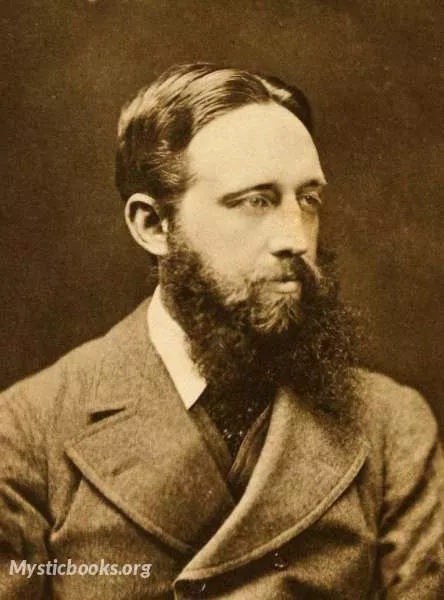
Timeline
Title
Country/Nationality
Richard Jefferies
ohn Richard Jefferies was an English nature writer, noted for his depiction of English rural life in essays, books of natural history, and novels. His childhood on a small Wiltshire farm had a great influence on him and provides the background to all his major works of fiction.
Jefferies's corpus of writings covers a range of genres and topics, including Bevis (1882), a classic children's book, and After London (1885), a work of science fiction. For much of his adult life he suffered from tuberculosis, and his struggles with the illness and with poverty also play a role in his writing. Jefferies valued and cultivated an intensity of feeling in his experience of the world around him, a cultivation that he describes in detail in The Story of My Heart (1883). This work, an introspective depiction of his thoughts and feelings about the world, gained him the reputation of a nature mystic at the time, but it is his success in conveying his awareness of nature and people within it, both in his fiction and in essay collections such as The Amateur Poacher (1879) and Round About a Great Estate (1880), that has drawn most admirers. Walter Besant wrote of his reaction on first reading Jefferies: "Why, we must have been blind all our lives; here were the most wonderful things possible going on under our very noses, but we saw them not."
John Richard Jefferies (he used the first name only during his childhood) was born at Coate in the parish of Chiseldon, near Swindon, Wiltshire, the son of a farmer, James Luckett Jefferies (1816–1896). His birthplace and home is now a museum open to the public. James Jefferies had the farm from his father, John Jefferies, who had been a printer in London before returning to Swindon to run the family mill and bakery. Richard's mother, Elizabeth Gyde (1817–1895), always called Betsy, was the daughter of John Jefferies's binder and manager.
In November 1864, at the age of sixteen, he and a cousin, James Cox, ran off to France, intending to walk to Russia. (Cox, slightly older than Jefferies, worked for the Great Western Railway and had a little money saved.) After crossing the channel, they soon found that their schoolboy French was insufficient and returned to England. Before they reached Swindon, they noticed an advertisement for cheap crossings from Liverpool to America and set off in this new direction. The tickets however, did not include the cost of food; and the boys were forced to return to Swindon after an attempt to pawn their watches had drawn the attention of the police.
In 1874, the year of his first published novel, The Scarlet Shawl, he married Jessie Baden (1853–1926), the daughter of a nearby farmer. After living for a few months at Coate Farm, the couple moved to a house in Swindon in 1875 (its current address is 93 Victoria Road); and their first child, Richard Harold Jefferies, was born there on 3 May.
After Eltham, Jefferies lived briefly in various parts of Sussex, first at Rotherfield, then in a house on Crowborough Hill. In Crowborough Jefferies completed his most ambitious and most unusual novel, Amaryllis at the Fair (1887). Closely based on his own family at Coate, it describes a farm and a family imperceptibly approaching disaster. There is little narrative development; instead significant or typical moments are presented in short scenes or even tableaux.
Illness and resulting lower productivity had impoverished Jefferies; and the editor Charles Longman suggested an application to the Royal Literary Fund. At first Jefferies resisted the suggestion, regarding aid from aristocratic patrons not involved in literary work as humiliating: "Patrons of literature! was there ever such a disgrace in the nineteenth century? Patrons of literature! The thing is simply abominable!" Longman finally succeeded in convincing Jefferies that the fund was "assisted by everybody who had made any success in literature". An application was accepted and the committee voted a grant of one hundred pounds. Another fund arranged by Longman enabled Jefferies to move nearer to the sea, at Goring, a suburb of Worthing. There, on 14 August 1887, he died of tuberculosis and exhaustion. He is buried in Broadwater and Worthing Cemetery in Worthing.
Books by Richard Jefferies

After London, or Wild England
First published in 1885, After London, or Wild England is considered to be one of the earliest instances of post-apocalyptic fiction, describing the effects of an unspecified catastrophe that dramatically changes the face of England and its populatio...

The Gamekeeper at Home
Richard Jefferies (1848 – 1887) was born and spent his childhood on a farm at Coate,Wiltshire. He joined the ‘Wiltshire and Gloucestershire Standard’ in 1868 and also started to write articles and pamphlets on various agricultural issues and local hi...

Round About a Great Estate
'Round About a Great Estate' by Richard Jefferies, is a captivating exploration of the English countryside, its natural beauty, and the lives of the people who inhabit it. The novel is set against the backdrop of the industrial revolution, offering a...